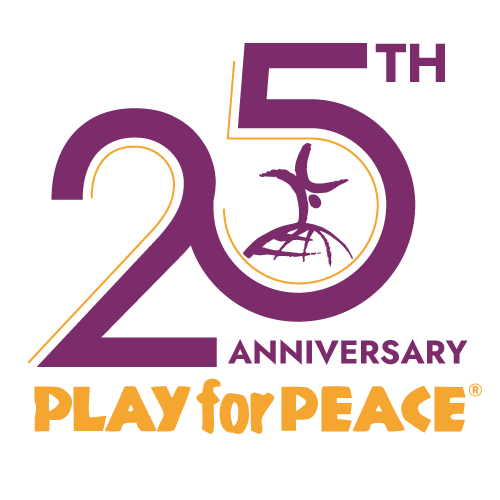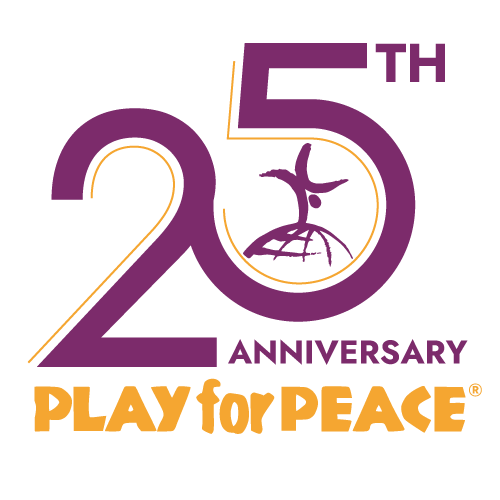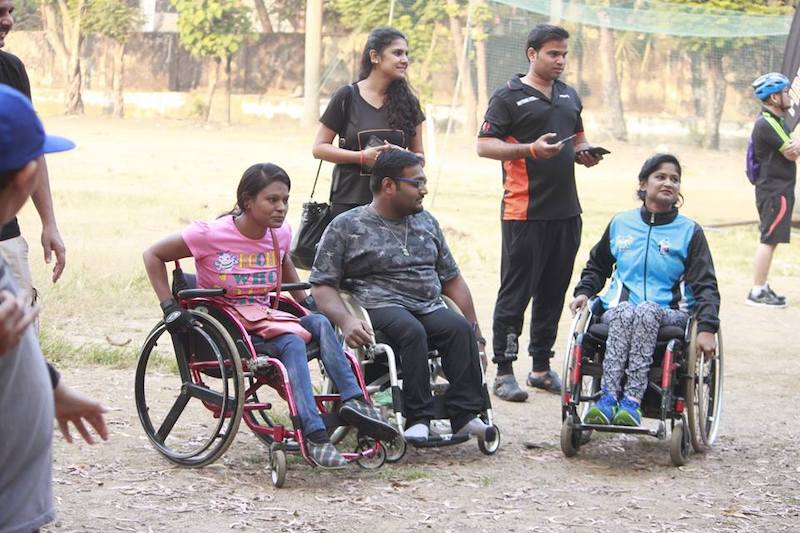We are excited to share this post by Nikhil Mehta, a Play for Peace certified trainer from Mumbai, India. He was introduced to Play for Peace in 2014, starting out as a volunteer and later receiving a diploma in experiential education. He now conducts Practice Peace sessions on a regular basis. Here Nikhil reflects on his experience with the power of cooperative play.
I am a strong believer in the power of play and playfulness. I believe that play can transform lives. I was introduced to cooperative play in 2014 through Play for Peace and experiential education. Since then, I have been on a journey of self discovery, while working (and playing!) with ‘children’ of all ages—little children, young children, adult children, elderly children! While sharing so many warm and exciting moments of playfulness with people from different age groups and spheres of life, the journey has taught me that playfulness and mindfulness can co-exist. In fact, it is the mindfulness aspect of Play for Peace (PFP) that often plays a key role in creating participants’ positive and often transformative experiences! I like to call this mindfulness the “Spirit of Play for Peace.” If the PFP session is a sea full of playful waves and exuberant energy, what the sea holds in its depths is the spirit of PFP. It is this depth in PFP facilitators and participants that makes each session highly impactful. While there is a lot of movement—physically, intellectually, and emotionally—during a PFP session, the impact of it all can be an anchoring feeling, one of groundedness and peace with one’s own self and with others.
How does it really work? Does it always happen on its own when people come together and play games? What does this spirit of Play for Peace look and feel like?
As a trainer and facilitator, I always aim to also be mindful of the core values of PFP while playing and sharing moments of laughter and joy with the participants. This awareness, understanding, and practice of PFP core values (cooperation, inclusion, safety, role modeling and fun) is what creates an authentic Play for Peace experience. It is the practice of these core values by the PFP facilitator that makes the spirit of Play for Peace come alive, and often leads to participants feeling cared for and included, while having fun together and experiencing a deep sense of play!
I remember one PFP session that included participants in wheelchairs and others who were living with visual impairment. One girl, who happened to be blind, said of her experience reflection, “ [It] felt really nice! I got to play so much. The nature of the games is such that we could all be a part of it.”
Her mother who came with her said, “I usually accompany my daughter and she does the activities. But this time, even I played along with her—for the first time ever!” Her mother was initially hesitant, but as the session progressed, she felt safe and able to participate with her daughter and other participants. Such are the wonders of the spirit of Play for Peace! Even facilitators are sometimes taken by surprise by the deep sense of happiness the feel from the impact of Play for Peace on the participants.
More and more I’ve seen myself carrying and living this spirit of Play for Peace, even when I’m not facilitating a cooperative play session. Recently, I was a member of a team that facilitated classroom sessions on waste segregation and recycling in various schools in Mumbai. During one of the sessions, I was told by a school teacher that it was my bad luck that I got one of the most difficult classes to facilitate. By the fourth session—the last session with the class—I experienced pure joy from the deep sense of connection I felt with the children. The session went beautifully, and we were completely in sync with each other. One of the prime reasons for this was that we had created a caring and inclusive space with elements of fun—the core values I have been practicing as a PFP trainer and facilitator. These core values and this spirit of Play for Peace often becomes a part of our being as facilitators, anywhere and everywhere we go.
If you are looking to start your journey as a Play for Peace facilitator, beware of the fact that wherever you go the core values—or the spirit of Play for Peace—might follow! As for me, I will continue to sail on these playful waves, while being aware of the positive connections held deep within the sea.
Thank you to Adventure Beyond Barriers for hosting this incredible session!



